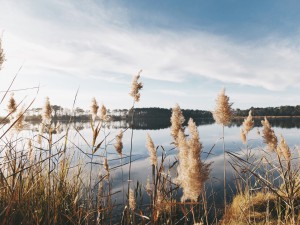Worldwide, people benefit greatly from the irreplaceable services provided by freshwater lakes, such as drinking water, recreation, and fisheries.
 However, human activities in lake watersheds contribute to pollution and the growth of harmful algal blooms that threaten the very waters upon which people depend.
However, human activities in lake watersheds contribute to pollution and the growth of harmful algal blooms that threaten the very waters upon which people depend.
But this degradation can also inspire a change in behavior. For example, lake associations can initiate citizen-driven actions to protect and improve water quality. But will this action come in time? And will it focus on the key factors that affect water quality?
This project examines the connections between land-use decision making by people, lake water quality, and the community responses that stimulate behavioral change to protect lakes. Our study focuses on two important lake watersheds that have different land uses and different water quality – Lake Mendota in Wisconsin, and Lake Sunapee in New Hampshire. By examining these lakes, our project will identify key factors that influence lake water quality over time.
By better understanding the relationships between humans and freshwater lakes, our project will support science-based monitoring, advocacy, and volunteer organizations as they work to protect and improve lake water quality.
